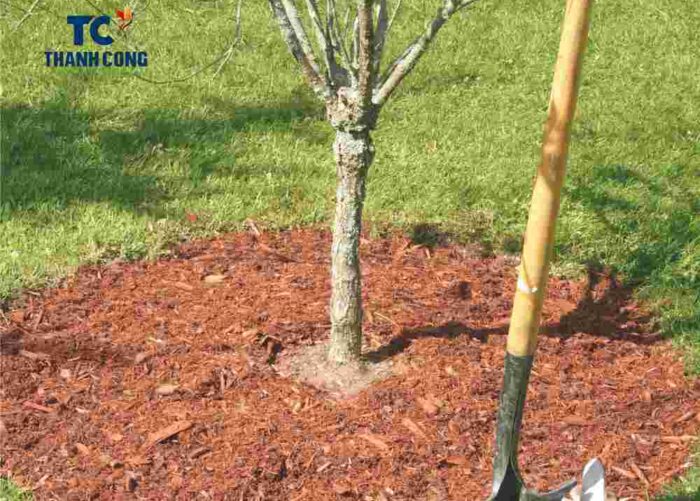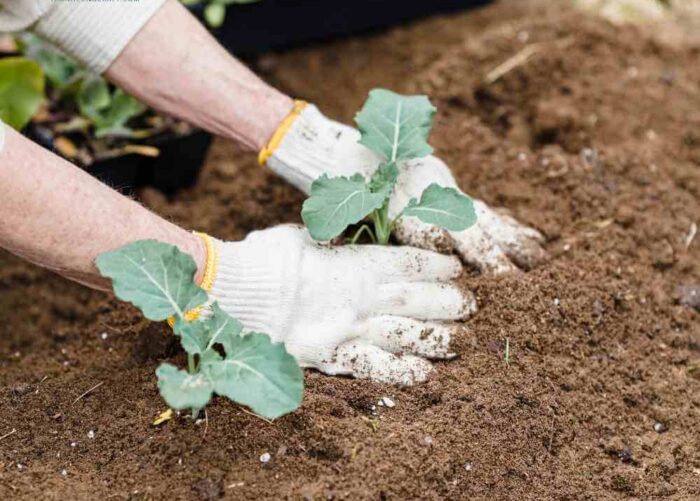Coconut husks, coconut chips are an eco-friendly material wildly applied in the agriculture and producing handicraft products. Coconut shells with many good properties, such as moisturizing, anti-erosion, and making the soil porous, are used to plant trees. In this article, let’s discuss: “How to Use Coconut Husk for Plants?”
Contents
1. The Benefits of Coconut Husk for Plants
Coconut husk for plants can be an excellent source of organic matter. Here are some ways you can use coconut husk for plants:
- Coco coir: Coconut coir is a fibrous material that can be used as a soil amendment or a growing medium. It can retain water well and is an excellent substitute for peat moss. Coco coir is often used in hydroponics, as it provides good drainage and aeration.
- Mulch: Coconut husks can be shredded and used as mulch around plants. This can help retain moisture in the soil and suppress weed growth. Coconut husk mulch can be used in both vegetable gardens and ornamental beds. (See Also: The Benefits and Uses of Coconut Coir Mulch)
- Composting: Coconut husks can be added to a compost pile to provide carbon-rich material. Composting can help break down the tough fibers of the husk and turn them into nutrient-rich soil for your plants.
- Potting mix: You can mixed coconut chips for plants with other materials like perlite, vermiculite, and compost to create a lightweight, well-draining potting mix. This mix can be used for planting seedlings or container-grown plants.
- Erosion control: Coconut husk substrate can control erosion on slopes or in areas with heavy rainfall. The fibers in the husk can help stabilize soil and prevent decay.
Overall, coconut bark are a versatile material that can be used in many different ways to benefit your plants.

2. How to Use Coconut Husk for Plants?
Coconut husk can be used as fertilizer. Spread the shredded or chopped coconut husk directly onto the soil. It improves soil aeration, water retention, and adds organic matter. As it decomposes, coconut husk slowly releases nutrients into the soil.
Here are the detail ways:
2.1 Using Coconut Coir in Potting Mix
To prepare coconut coir for use in potting mixes, start by soaking it in water to rehydrate the compressed blocks or bricks. Once soaked, rinse the coir thoroughly to remove any residual salts. Coir can be used alone or mixed with other components like perlite and compost to create a well-draining potting mix.
A common recipe includes one part coir, one part perlite, and one part compost. This blend provides an optimal balance of drainage, aeration, and nutrient availability for potted plants.
2.2 Coconut Coir for Seed Starting and Propagation
To use coir for seed starting, fill seed trays or pots with moistened coir. Sow seeds as per the instructions and keep the coir consistently moist. For plant propagation, coir can be used to root cuttings, providing a stable and nurturing environment that encourages root development.
Coconut coir is an excellent medium for seed starting and plant propagation due to its fine texture and moisture retention capabilities.
2.3 Coconut Husk as Mulch
Coconut coir mulch offers several advantages, including moisture retention, weed suppression, and temperature regulation. To apply coir mulch, spread a layer of moistened coir around the base of plants, ensuring that it covers the soil evenly. This mulch layer helps retain soil moisture, reduces the need for frequent watering, and protects plant roots from extreme temperatures.
Additionally, coir mulch gradually breaks down, enriching the soil with organic matter.

You can order the treated coconut husk for plants bricks on e-comerce sites, soak them in water, and use them right away. This method is only suitable when you have a small number of plants, and the price is relatively high.
3. Conclusion
Coconut husk, or coir, is a versatile and sustainable solution for modern gardening. Its benefits, including excellent drainage, superior moisture retention, and promotion of organic growth, make it an invaluable addition to any garden. By incorporating coir into your gardening practices, you can enjoy healthier plants while contributing to environmental sustainability. Embrace the power of coconut coir and transform your garden into an eco-friendly haven.
For questions, please send thanhcongcraft an email at [email protected] or leave us a message at WhatsApp: +84967485411. Hope to serve you soon! Best regard!
Check out our Coconut Bowl Wholesale Category
Do you wonder: the difference between coconut tree and palm tree?


